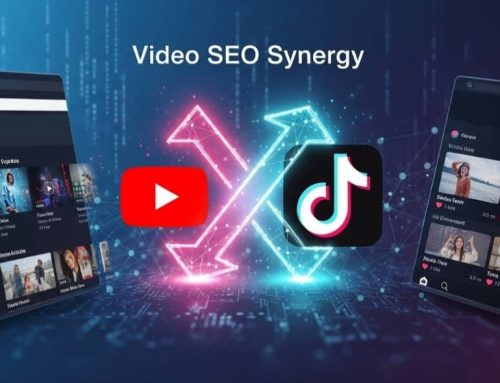Numerous companies regard their social media strategy (such as Facebook, X, or Instagram) and their SEO strategy as entirely distinct entities. Nevertheless, platforms like Social Media are remarkably effective in enhancing content visibility, which, although indirectly, significantly contributes to improving your Web Ranking and Keyword Ranking.
Although social media links are typically “nofollow” (indicating they do not directly enhance authority like a high-quality Backlink), they act as an essential catalyst. This article examines the interdependent relationship between Social Media and SEO, as well as how to utilize your social channels to attain greater organic visibility.
3 Ways Social Media Boosts Your Search Engine Ranking
1. The Amplification Effect: Getting Content Indexed Faster
When you release a new article designed to enhance your Search Engine Ranking, it is essential for Google to discover it. Social media serves as a significant indicator to search engine crawlers.
- Accelerated Discovery: Promptly disseminating new content across social media platforms generates immediate engagement. This influx of initial traffic indicates to Google and other search engines that the page is both new and pertinent, prompting them to crawl and index the page more swiftly.
- Branded Search Volume: A dynamic and interactive social media presence results in an increase in branded searches (for instance, individuals searching for “Your Brand + Product Name”). Google interprets a high frequency of branded searches as a robust indicator of trust and authority, which in turn enhances your overall domain ranking.
2. Social Media is the Engine for Earned Backlinks
Social media serves as the most effective means to present your content to individuals who manage high-authority websites—the very individuals from whom you seek to acquire Backlinks.
- Targeted Outreach: A well-planned share on LinkedIn or within a pertinent industry group can position your content directly in the feeds of journalists, industry bloggers, or experts. Should they find your content to be of value, they are inclined to reference it in their subsequent articles, leading to a high-quality, do-follow Backlink that positively influences your domain authority.
- Viral Loop: Content that is easily shareable (such as infographics, original research, or humorous perspectives) tends to be disseminated quickly across social media platforms. This broader reach significantly enhances the likelihood of it being noticed and linked by news outlets and prominent publications.
3. Monitoring for Reputation and E-E-A-T
Google’s ranking algorithms are increasingly dependent on real-world indicators of expertise, experience, authority, and trustworthiness (E-E-A-T). Social media serves as a key source for these reputation indicators.
- Online Reputation: When individuals search for your brand, social media profiles (such as Facebook, LinkedIn, etc.) frequently achieve high rankings. Maintaining consistent, professional engagement and providing prompt, positive responses to customer service inquiries on social media platforms establishes a public record of quality and dependability.
- Traffic Quality: Social media has the potential to generate high-quality, engaged traffic to your website. If users arriving from social channels spend considerable time on your page without quickly
Conclusion
While social media may not directly influence rankings, its significance in amplifying content, generating backlinks, and managing reputation renders it essential for a contemporary SEO strategy. By considering your social media platforms as distribution centers for content, you can effectively leverage them to aid in your pursuit of attaining the highest possible web ranking.



